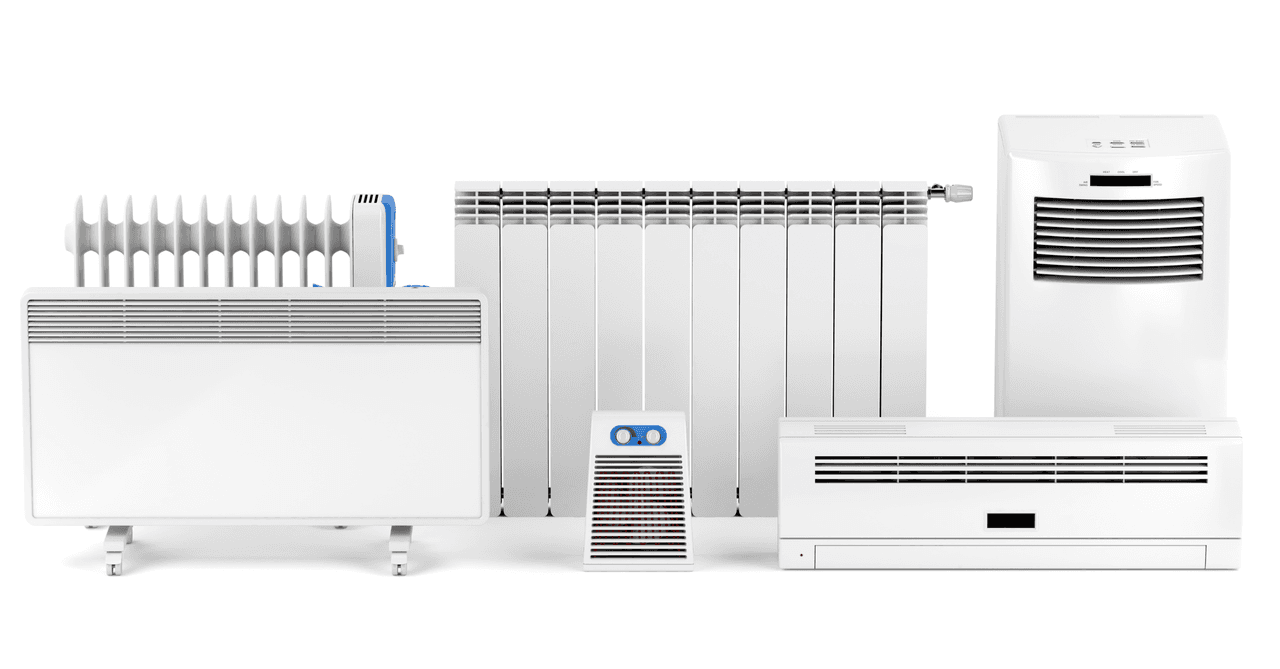
During your home-building process, making an informed decision regarding the type of heating system you’d like installed is of utmost importance. Gas, hot water, or electric heating solutions, no matter the system, each have their advantages and disadvantages. However, electric heaters are the most commonly used heating solution in the province of Quebec, and most residents aren’t holding back from renovating their entire heating system to install residential electric heaters.
There are several electric heating solutions available on the market that differ based on their energy consumption, eco-friendly characteristics, as well as their functioning. Here’s everything you need to know about choosing an electric heater tailored to your needs!
Several Types of Electric Heaters
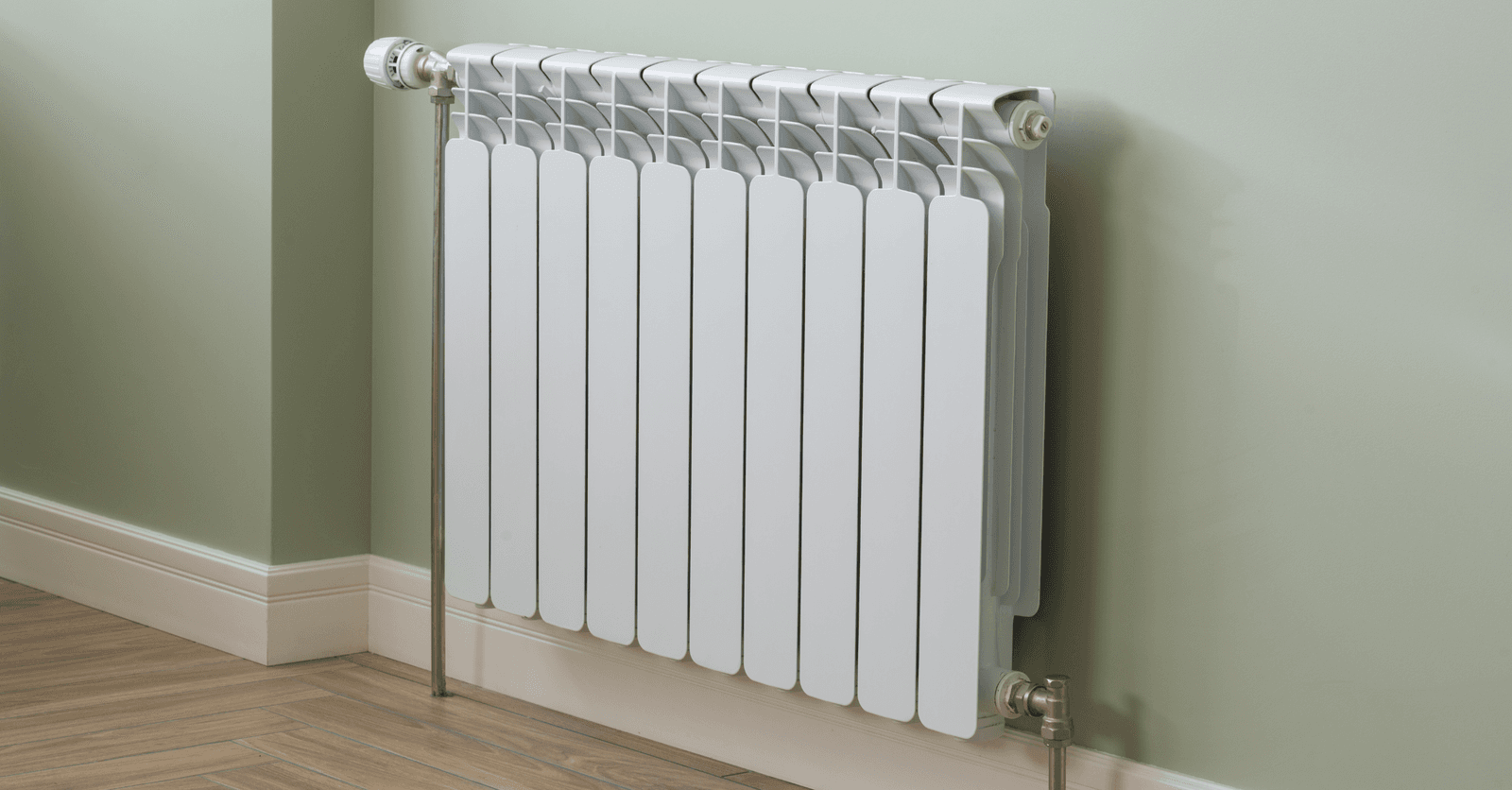
Source: Canva
1- Electric baseboards
Electric baseboard heaters are the most common heating solution in Quebec dwellings. This type of heating enables you to independently control the temperature in every room, courtesy of a thermostat. It’s rather straightforward: the baseboards warm up the floor-level air and said air will then naturally rise, warming up the entire room in question.
You may have noticed that most baseboard heaters are typically installed right beneath windows. In fact, this type of heating solution curbs cold air drafts seeping in through openings or gaps, thereby eliminating heat losses.
Pros
Not an expensive purchase;
Easy to install;
Simple to use.
Cons
Monopolizes long stretches of the lower wall and floor;
Emits a crackling sound when the baseboard warms up or cools down;
The warmth isn’t evenly distributed around the room.
How much does an electric baseboard heater cost?
Plan on spending $55 for a quality baseboard, about $650 to $1,100 for an entire, medium-size home heating system. To that amount, add an additional $2,000 for installation fees. Baseboard heaters don’t require professional maintenance to remain in good working order, maybe just a wipe-down every now and again, which you can do yourself.
Noteworthy
According to Hydro-Québec, replacing bimetal temperature switches with electronic thermostats can allow you to save up to 10% in yearly heating costs (about $150), while also improving your overall comfort. Think about it!
2- Convection heater
Electric convection is a technology used for residential and commercial constructions. This system isn’t only reliable and safe, but it’s also aesthetic and silent. It can be used as a main heating solution or in the shape of a portable heater (bathroom or sunroom), as convection heating is known for the comfort it produces since the heat generated is more evenly dispersed compared to electric baseboard heaters.
Quebec-based magazine Protégez-Vous recommends choosing the ideal convector by basing your decision on several factors, such as power, convenience, aesthetics, efficiency, as well as overall comfort provided. As for power, there’s a 10-watt rule according to which said amount of wattage is sufficient to heat a square foot. As such, you’ll need a 2,000-watt electric convector to adequately heat a 200-square-foot living room (18.58 square metres).
Pros
The heat generated is more proportional;
Is an energy-efficient choice;
Can function as both a main heater and a portable heater.
Cons
It’s relatively more expensive compared to electric baseboards.
Different Types of Electric Convectors
Based on your needs, you can choose between several convector models:
Convection heater: Standard model, ideal in main living areas;
Radiant heater: Generates a decent amount of heat, meaning it’s well-suited for rooms with large windows, like a sunroom or conservatory;
Fan heater: Small and compact but highly efficient;
Towel warmer: True to its name, this model is perfect to efficiently warm up the towels, as well as your bathroom.
The Cost of a Convection Heating System
Plan on spending roughly $380 for a quality convector, and between $2,600 and $4,000 to install a household convection heating system. Naturally, the cost varies based on the number of rooms and their respective sizes. Much like electric baseboards, installation fees are roughly $2,000.
It’s best to purchase this type of product directly from manufacturers or specialized retailers that also provide an installation service. This comes in handy since such a system must be installed by professional HVAC technicians.
Noteworthy
Did you know that systems were made available to program your heating schedule ahead of time? Indeed, it’s an efficient and economical solution meant to improve overall comfort. Prices for wall-mounted controllers start at $49. Wall-mounted control panels allow for monitoring of the entire heating system to ensure an even temperature in all rooms.
If you’re looking for more advanced technology, you may want a programmable thermostat (starting at $92). This system allows one to program a household heating calendar based on dweller-specific habits to maximize energy savings. Source: Convectair
3- Electric floor heating
Heated floors (also known as radiant floor heating) work at low temperatures, with a large radiant surface. As such, infrared rays emitted by the floor system provide heat to surrounding environments.
Pros
Decent long-term energy savings;
Excellent heat distribution in areas where located;
Guaranteed comfort (noiseless, odourless, and doesn’t displace dust);
Invisible system (total control over furniture positioning).
Cons
Significant initial installation cost;
The system needs some time to generate heat;
During renovations, door heights need to be adjusted, as the floor will sit a few inches higher.
How much does an electric heated floor cost?
Plan on spending between $8,000 and $11,000 to install this type of heating solution in a 2,400-square-foot home. To the aforementioned cost, budget between $1,000 and $2,000 in installation fees. For renovation purposes (especially in older homes), an additional $1,000 to $2,000 can be expected to switch the electric installation.
For more information on the subject matter, check out our article Everything to Know About Heated Floors.
4- Fan heater
Fan heaters are heating solutions equipped with a variable-speed fan mechanism. There are multiple fan heater models that can be installed whether at the bottom or top section of walls, on ceilings, in garages, kitchens, and entryways. Some models have a built-in timer to preset the desired temperature.
Pros
Quick and easy installation;
Noiseless heating solution;
Allows heating temperatures to increase rapidly in any given room.
Cons
A significant expense (between $200 and $500 per heater)
Electric Heating System Installation Grants
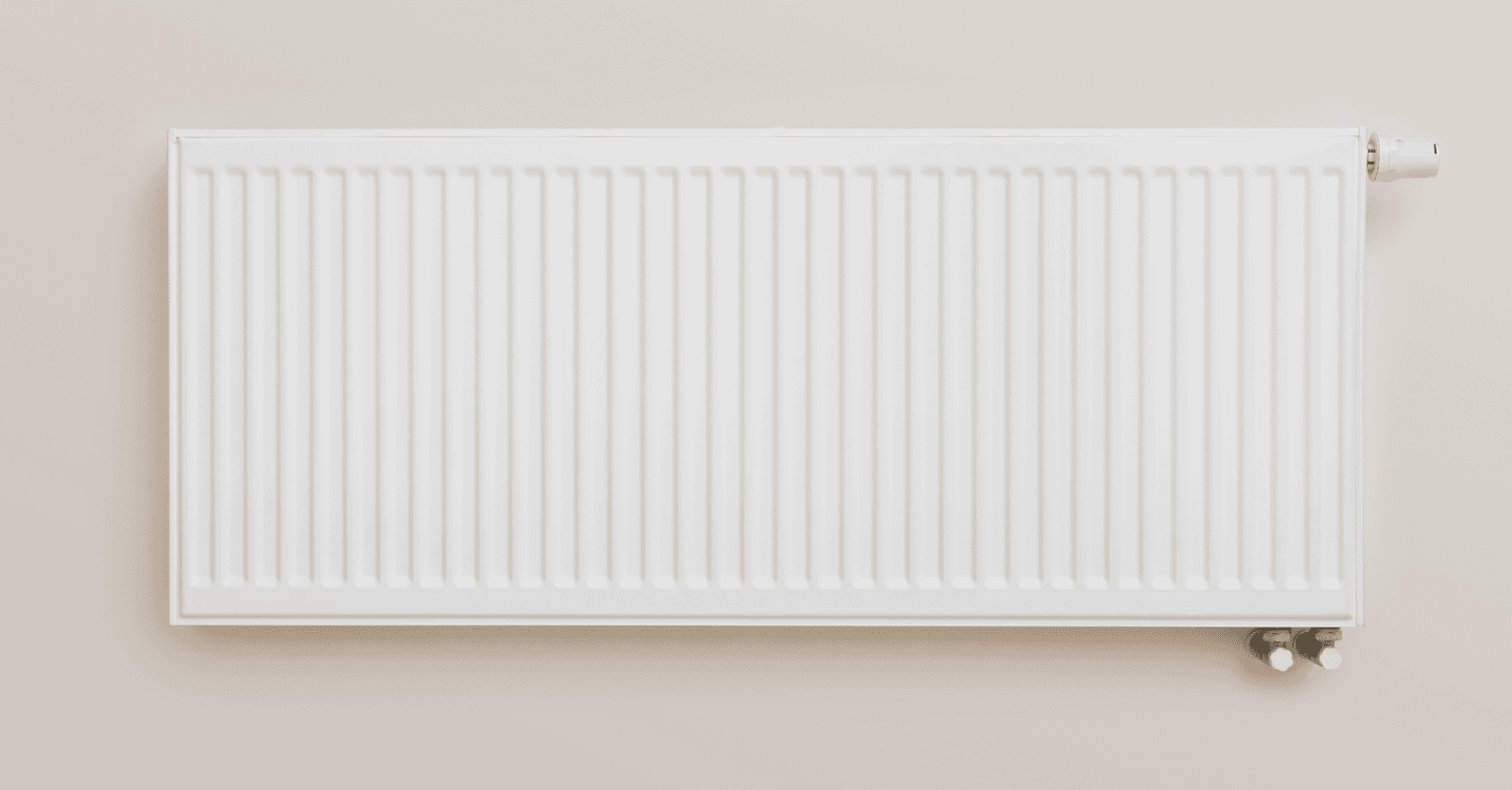
Source: Canva
In Quebec, residents can benefit from worthwhile prices in regard to electricity, which is an encouraging factor when installing an electric heating system. Electricity is clean energy, and for that reason alone, the government strongly endorses replacing an oil- or propane-fueled system with an electric one that’s not only more eco-friendly but less health-hazardous.
Quebec’s Energy Transition plan launched the Chauffez vert program to improve household energy efficiency, while also reducing greenhouse gas emissions. This financial assistance, which can be as much as $1,275, assists homeowners in replacing their oil-fueled heating system with an electric one, or with another renewable energy source.
For more information on the subject matter, check out our articles 5 Financial Aid Programs for a Greener Home and The Different Green Home Renovation Tax Credits and Grants Available (2nd article is only available in French).
How Electric Heaters Will Shape the Future
In the province of Quebec, heating and air conditioning costs amount to 54% of total electricity bills. The success of electric heating solutions is such that manufacturers are constantly working to develop more innovative, eco-friendly, and cost-effective technologies.
Get 3 quotes for your electric heater installation
RenoQuotes.com can help you get quotes for your electric heater installation. If you submit your project to us, we’ll put you in contact with top-rated contractors. Fill in the form on the homepage (it only takes a few minutes) and get estimates from trusted professionals.
Dial 1-844 828-1588 to speak with one of our customer service representatives.
Looking for something else?
Related articles
The latest industry news, interviews, technologies, and resources.
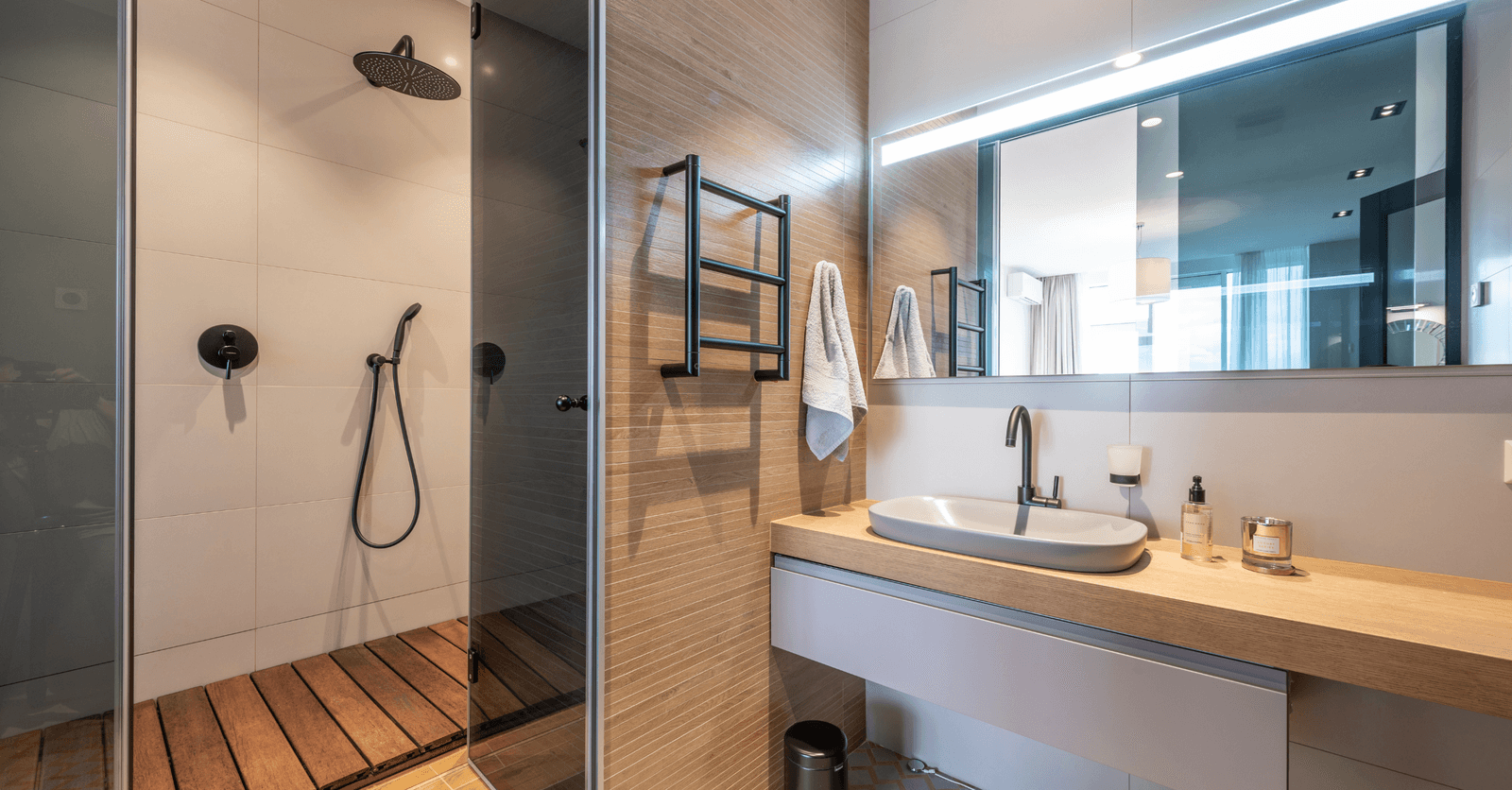
Editorial Team
•10 Apr 2020
Have you outgrown the current look of your bathroom? With the passing years, wear and tear will naturally leave its mark, so it’s quite normal to aspire to a change of scenery.

Editorial Team
•12 Aug 2025
Are you looking to buy ceramic tiles at the best price in Laval? To help reduce your effort, we have put together a guide of stores selling ceramic in Laval.

Editorial Team
•18 Apr 2024
Are you dreaming of a beautiful outdoor kitchen to unwind in the sun, inhaling the smells from your dinner cooking slowly on the barbecue? Before designing your new summer kitchen, you first have to establish a realistic budget. But, the question is, How much should you plan on spending for such a project?
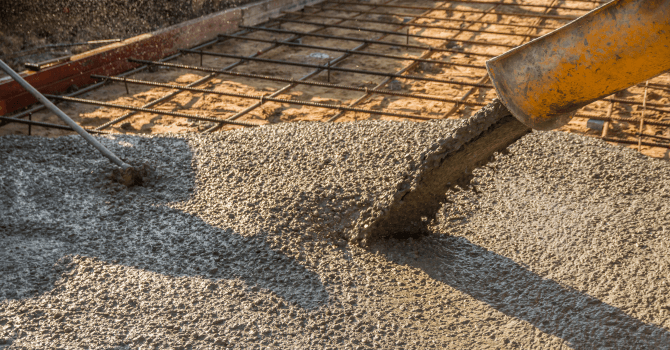
Cynthia Pigeon
•08 Nov 2023
Whether for interior or exterior work, knowing how to pour a concrete slab is vital for anyone wanting to carry out major home renovations. This process can be a bit tricky, especially since you have to follow certain steps to a T, otherwise, the slab could crack prematurely.

Editorial Team
•08 Nov 2023
We previously touched on the wonderful world of recessed lighting, but what areas of your home can benefit the most from such a great lighting style? Kitchens are becoming the focal point of a home, acting as a hub of sorts.